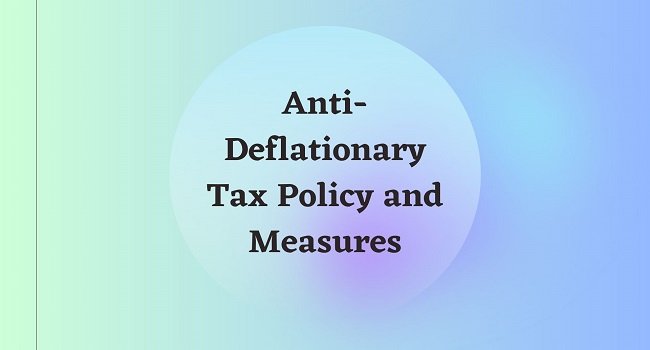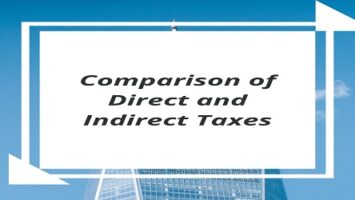Anti-Deflationary Tax Policy and Measures:
Anti-Deflationary Tax Policy- Taxation is a highly powerful instrument in the hands of public authorities to effect changes in disposable incomes, consumption, and investment. Taxes represent a withdrawal of funds from private hands and, from this point of view, exercise a deflationary effect. A tax reduction, on the other hand, will obviously leave larger funds with the community for consumption and investment purposes and will ultimately lead to greater spending activity. As a generalization, then, in times of threatening overfull employment, stabilizing fiscal policy would call for increased levels of taxation. In times of threatening unemployment, tax reduction would be the order of the day.
It has been held by some that, there is an element of automaticity about the counter-cyclical effects of the tax system. As the national income increases because of greater resource utilization or rising prices, the tax base also rises, thus, tax receipts automatically increase when the economy is expanding and fall when the economy is contracting. A highly progressive tax system will tend to increase tax burdens more than proportionately to a rise in the level of the economy and fall more rapidly than a decline. Hence, a progressive tax is to be preferred to a regressive one from the standpoint of view of stabilization.
However, it should be clearly stated that, during the depression, tax policy has to be such as to encourage private consumption and investment, while during inflation, tax policy must curtail consumption and investment.
Anti-Deflationary Tax Measures- A tax reduction will leave larger funds with the community for consumption and investment purposes and will ultimately lead to greater spending activity, i.e., will tend to increase effective demand and reduce the deflationary gap. In this respect, sometimes suggestion is given about reducing the rates of commodity taxes like excise duties, sales taxes, and import duties. Concessions in these taxes tend to promote consumption. However, a number of economists, including Hansen and Musgrave, with their eyes on raising investment, have emphasized upon the reduction in corporate and personal income taxation to overcome contractionary tendencies.
But, it has been argued that these measures will no doubt, increase the disposable income, yet their impact upon investment is uncertain. It has been said that while the general economic situation is demoralizing, even a heavy reduction in taxes does not alter an entrepreneur’s decision to undertake more investment. It means that when the general economic condition is demoralizing, i.e., during the depression, even a heavy reduction in taxes does not stimulate investment. Thus, Kalecki has completely disapproved of the method of tax reduction for stimulating private consumption and investment.
Besides, it has been argued that, even if a tax reduction does stimulate consumption and investment expenditure, the most vital question will be about the extent to which unemployment is mitigated, i.e., the extent to which unemployment is reduced. In that case, the reduction in unemployment is very small. Again, if a policy of repeated tax reduction is followed, to stimulate consumption and investment, then consumers and investors both are likely to postpone their spending in anticipation of a further fall in taxes. In this context, Dernburg and McDougall pointed out that once a tax change is made to meet an emergency like depression, it will become extremely difficult for the public authority to come to the original rates after the emergency is over.
However, it can not be denied that in a short period, it is wise to encourage consumption by lowering sales taxes and excise duties. In extreme cases, it has also been suggested that tax collection may be suspended for a short time.









Comments (No)